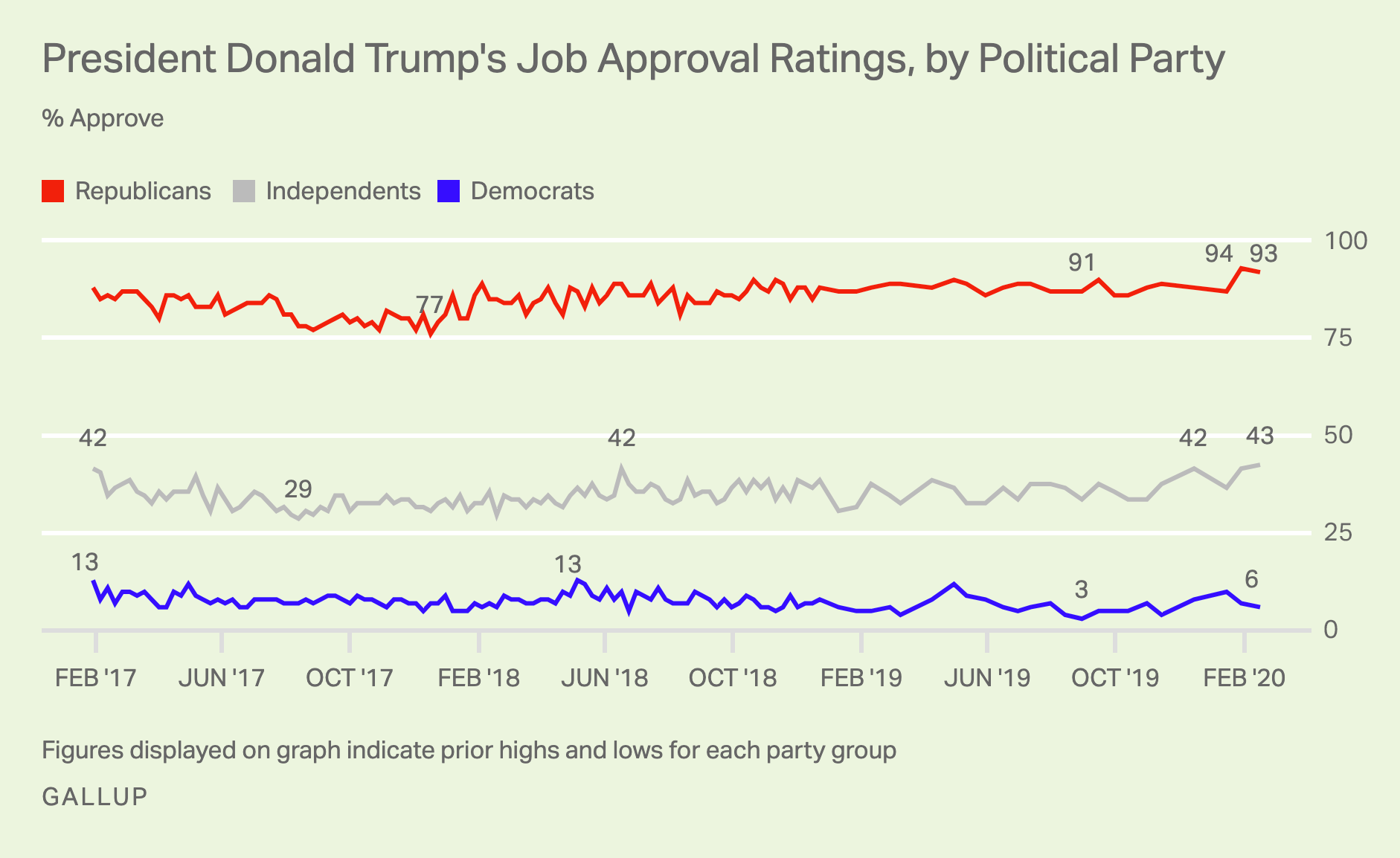Trump's Approval Holds at 40% Amidst Historic 92-Point Partisan Divide

A recent Gallup poll, conducted from August 1 to 20, reveals that President Donald Trump's job approval stands at 40% overall, a figure consistent with his ratings in recent months. The survey, released on August 26, highlights an unprecedented level of partisan polarization, with 93% of Republicans approving of his performance compared to a mere 1% among Democrats. This 92-point gap matches the largest partisan divide ever recorded in Gallup's presidential approval trends, a level previously seen in October 2020.
The extreme divergence in approval ratings underscores a deepening chasm in American political sentiment. The 1% Democratic approval rating is tied with previous lows for any Republican president, including a similar figure recorded in June of this year. This stark division reflects a trend of intensifying political tribalism, a phenomenon political analyst Larry Sabato has frequently commented on.
According to Sabato, director of the University of Virginia's Center for Politics, the current level of polarization is "unprecedented in modern history" and poses a significant threat to democracy. He attributes this escalating divide to factors such as the rise of social media, the decline of traditional media, and the willingness of political leaders to exploit divisions for electoral gain. Sabato emphasizes that this is a "deep-seated problem" unlikely to dissipate quickly.
During his second term, President Trump has pursued a robust policy agenda, including a continued crackdown on illegal immigration and the implementation of new tariffs on foreign imports. He also signed the "Big, Beautiful Bill," a sweeping spending measure. Despite these actions, the poll indicates struggles in areas such as ending conflicts in Ukraine and Gaza, and his administration has faced scrutiny regarding its handling of the Jeffrey Epstein investigation.
The Gallup poll further detailed the President's approval on specific issues. His handling of foreign affairs garnered a 39% overall approval (92% R, 3% D), while his economic performance stood at 37% overall approval (93% R, 4% D). The broader national mood also reflects this polarization, with only 31% of Americans expressing satisfaction with the country's direction, a metric showing a 76-point partisan gap between Republicans and Democrats.
Gallup polls, widely respected for their long-standing methodology, provide a consistent measure of public opinion on presidential performance. The current findings reinforce a pattern of deeply entrenched partisan views, making effective governance challenging in an increasingly fractured electorate.